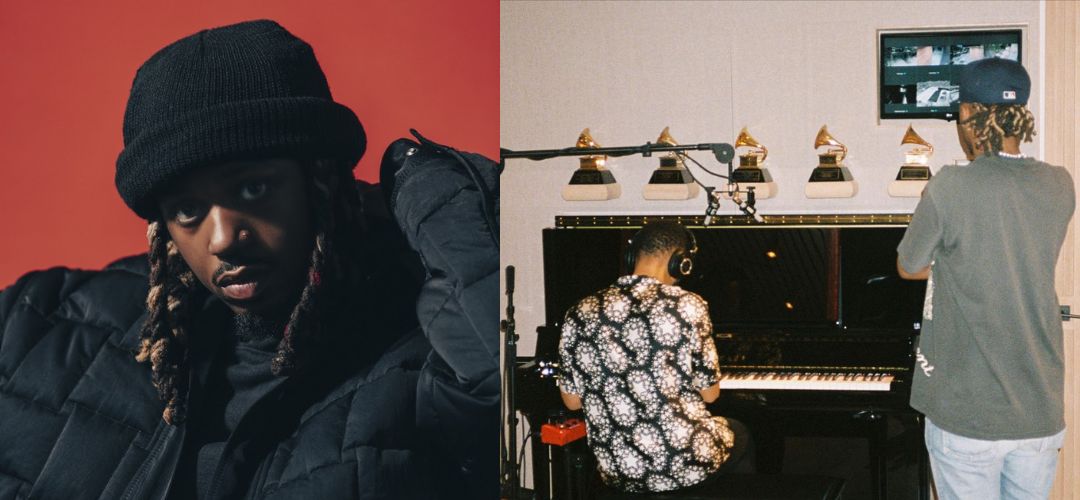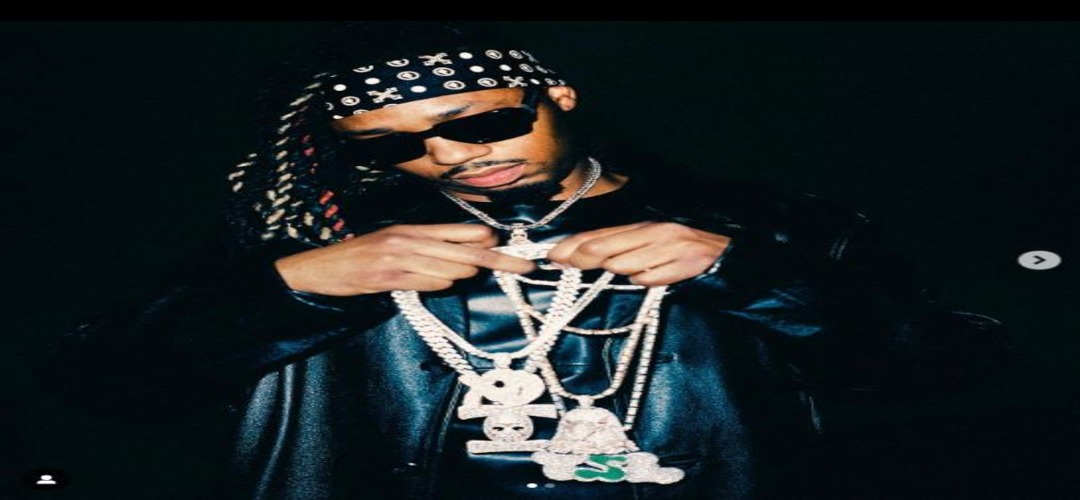The position of hip-hop producers has been a hot-button issue for the better part of the last year. As the music industry continues to change, labels seem to be searching for loopholes in order to avoid paying these hitmakers the bread they deserve.
Last week, E. Dan, a member of Pittsburgh production collective ID Labs, which produces much of Wiz Khalifa’s music, called out Atlantic Records for doing the most just to save a buck.
And it’s the producers’ pockets that are suffering as a result of the record labels’ thriftiness.
E. Dan told Beat Stars in an interview about how Atlantic called Wiz’s recent project Khalifa a mixtape in order to justify not properly compensating producers:
“The Khalifa album, I don’t know what they called it, a ‘street album?’ They came up with some really clever name that essentially meant, ‘Everyone involved, you’re going to get paid half what you normally do.’ I’ve seen it happen often over the last few years. Anything to save a buck for these labels”
.@WizKhalifa's producer E. Dan (@IdlabsMusic) explains how record labels avoid paying producers + how Wiz' loyalty got him beat placements 💯
Exclusive interview with @DJPain1 + @BeatStars 🙌🏽 pic.twitter.com/qAgm430dE5
— BeatStars (@BeatStars) January 2, 2018
This issue isn’t reserved to E. Dan or Atlantic. Last fall, Metro Boomin called out Atlantic, and specifically the head of the Artist Partner Group Mike Caren, for their mistreatment of producers and beatmakers from all over the industry have been trying to bring attention to the issue.
One producer at the forefront of the cause is Sonny Digital, who called for a producer union last summer when calling out the hip-hop industry’s neglect of the artists behind the beat. Sonny said:
“Y’all need to start respecting the producers a little more, big or small, in between,. It don’t matter. They all making all the sounds to this shit.”
Last week, in response to E. Dan’s comments about Atlantic, Sonny tweeted that this issue is much more pervasive within the entire industry,
“If you gonna call out Atlantic then you might as well call out all the labels because they all doing the same thing. Shit cash money was dropping actual albums and wasnt even paying the producers. You can’t just single out one party when all other parties doing the same.”
If you gonna call out Atlantic then you might as well call out all the labels because they all doing the same thing. Shit cash money was dropping actual albums and wasnt even paying the producers. You can’t just single out one party when all other parties doing the same. https://t.co/YaKPQfOgrn
— Sonny (@SonnyDigital) January 3, 2018
Sonny Digital has changed up his entire creative model in order to bypass the bullshit that many hip-hop producers are facing. He’s gotten in the booth, rapping on his own songs and will be dropping an EP in late January entitled Woke You Up.
But a brief glimpse at the backlash Sonny Digital has seen provides a pretty clear view at the forces working against producers trying to pave new lanes and revenue streams.
niggas stay tryna box me. Can you imagine what ppl were first saying about me being a producer when i told them that’s what i wanted to be 10+ years ago..niggas thought i wasn’t gonna be who i am. same with the rappin now. You like one of the ppl who told me beats wouldn’t work https://t.co/wGIvqvDlUB
— Sonny (@SonnyDigital) January 5, 2018
Sonny Digital is taking one strategy in order to get paid, while producers from around hip-hop are finding new ways to make revenue in the streaming era.
REVOLT spoke to a grip of producers, including Sonny Digital, DJ Mustard, and London on da Track, to discuss making money in the new landscape of the music industry, London on da Track emphasized the importance of building a brand:
“Right now music is based on streaming, not just regular sales. Mixtapes stream too. Just like ‘Roll In Peace’ by Kodak Black ft. XXXtentacion, it made money off of streaming, not sales. Either way, I’m getting paid off my brand. As long as my brand is large, I’m always going to accumulate money. I get paid on the front and backend and depending on who it is, some artists stream heavy off of mixtapes so I get more on the backend. Some artists don’t stream at all so I charge more on the front end.”
London On Da Track has enough of a name and reputation in the rap game that he can charge a lucrative rate based off his brand alone, but obviously not every producer has this amount of pull.
Even the producers behind some of the biggest hits in music, let alone hip-hop, are being squeezed by labels. TM88, the mastermind behind Lil Uzi Vert’s “XO Tour Lif3”, one of the most biggest tracks of 2017, claimed he didn’t see a dollar for the beat, further putting Atlantic on blast for their treatment of producers.
TM88 tweeted “Atlantic still ain’t paid niggas shit!” He went on to say, “Never got paid for xo ballin off old checks.” TM has seemingly deleted the tweets and then dropped a new Lil Uzi Vert collaboration “Mood” on his own SoundCloud.
https://soundcloud.com/tm88-808mafia/tm88-x-southside-x-lil-uzi-vert-mood
It’s notable here that TM88 dropped the song on his SoundCloud. Many producers have begun taking ownership of their own music as a way to ensure revenue.
Mike Will Made-It has his own label, Eardrummer Records, and has put out several beat projects under his own name. Metro Boomin has made several collaborative projects with rappers where he’s either an exclusive producer or named as a featured artist on the project.
Once again, this is only possible for producers like Mike Will and Metro, probably the two biggest beatmakers in hip-hop right now.
For up and coming producers, making their due bread has never been more complicated, they have to work just as hard on establishing a brand as they do on their art.
RCA got us producers like this on the first rocky album too – ughh I mean mixtape. that’s why it’s not on streaming sites. we gotta eat shit while they tour off our records. https://t.co/KLePuKYe3z
— DJ Burn One (@djburnone) January 3, 2018
This creates a bizarre dynamic for rappers and lyricists who are caught in a tug of war between their label and their producer.
DJ Mustard told REVOLT that labels often use artists to try and avoid paying producers. The West Coast hitmaker spoke on the importance of having legal representation:
“[The labels] don’t want to pay. They paint a picture to the artist saying, ‘I thought that was your friend, why is he trying to charge you $50,000?’ Then the label doesn’t want to pay and encourages the artist to talk to the producer. Nobody wants to pay for anything. That’s just how the world works. You just have to have a lawyer that gets you your money. Have your business right. Other than that, everything is up for negotiation.”
We’ve seen more and more producers stepping out from behind the boards and entering the booth as rappers themselves, establishing their own label, and putting out projects under their own name in order to get their deserved pay.
As the music business continues to charge into unprecedented and slightly murky new waters, producers are searching for ways to make money off their art. These producers are truly the backbone of hip-hop and their lack of compensation highlights a massive flaw within the industry.
While producers are going to keep finding ways to make sure they get a check, let’s make 2018 the year of producers getting paid.





